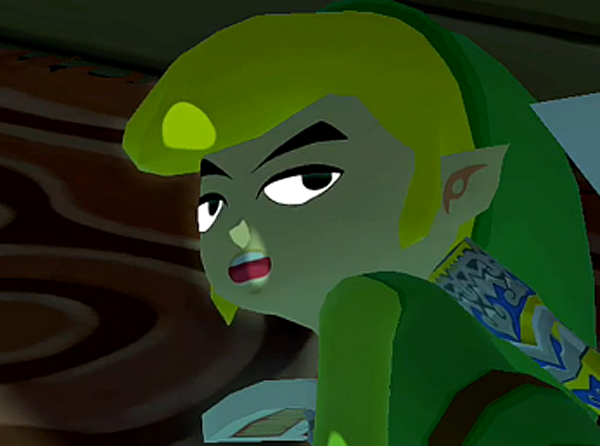

Share
31st July 2017
04:27pm BST


An artist's impression of the writer when he realised he'd forgotten to save
I knew as soon as it happened. The jolt rattled through my bones and into the pit of my stomach. I hadn't saved. I'd been playing for the last three hours and I hadn't saved. I'd just got the Hero's Bow, the Bombs, two Heart Containers and I hadn't saved. I hadn't saved. I hadn't saved. I was a 27-year-old man, suddenly 13 again. I felt that special kind of anger, somewhere between the hot steam of embarrassment and the pale fury at things beyond your control, rising inside me. Three hours of my life, down the drain. I'm not a kid anymore; time is precious and I just wasted a whole bunch of it. What else was there to do? I turned off the GameCube and went to bed. Shortly after, water from the thunderstorm outside started leaking through the ceiling. Thanks, universe. Lost progress is itself something of a lost concept. Autosave is accepted as standard in modern gaming; why inflict the pain of a technologically-limited past on a more-than-capable present? That's not to say that we're immune from losing our progress, but when it happens, we can blame the machine rather than ourselves. It wasn't always our fault, either: testy parents that didn't understand the concept of save points; siblings that lived to make your life a misery; friends wiping memory cards 'by accident'; clumsy feet knocking power cables out from consoles sitting precariously in the middle of the room.
Gamers used to live on a knife-edge. Harken back to the days of the NES, where saving wasn't even an option. Your only option was to leave it switched on with the TV off and hope beyond hope that no one touched it while you were away. There were any number of ways that someone could hit you where it hurt the most: progress.
But the rawest wound is the one you carve yourself; the agony of realising that all of this was preventable, had you just remembered to hit that button. In games like Resident Evil, save points are few and therefore leapt upon at first opportunity, but in Zelda and others, you can save at any point. If you choose to. If you remember to.
I now return to a distant feeling: the dread of going back to redo everything I had already done, to claw back everything that was already mine. When it happened, my instinctive reaction was to put the GameCube back in its box and never look at it again. The wound is still raw. But time will heal.
I've learned my lesson.
Again.
It wasn't always our fault, either: testy parents that didn't understand the concept of save points; siblings that lived to make your life a misery; friends wiping memory cards 'by accident'; clumsy feet knocking power cables out from consoles sitting precariously in the middle of the room.
Gamers used to live on a knife-edge. Harken back to the days of the NES, where saving wasn't even an option. Your only option was to leave it switched on with the TV off and hope beyond hope that no one touched it while you were away. There were any number of ways that someone could hit you where it hurt the most: progress.
But the rawest wound is the one you carve yourself; the agony of realising that all of this was preventable, had you just remembered to hit that button. In games like Resident Evil, save points are few and therefore leapt upon at first opportunity, but in Zelda and others, you can save at any point. If you choose to. If you remember to.
I now return to a distant feeling: the dread of going back to redo everything I had already done, to claw back everything that was already mine. When it happened, my instinctive reaction was to put the GameCube back in its box and never look at it again. The wound is still raw. But time will heal.
I've learned my lesson.
Again.Explore more on these topics:

Entertainment - JOE.co.uk | Joe.co.uk
entertainment